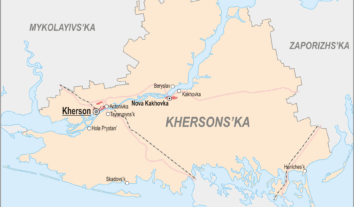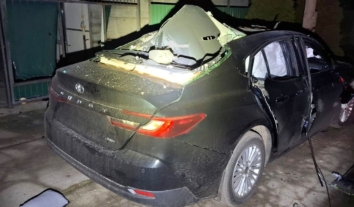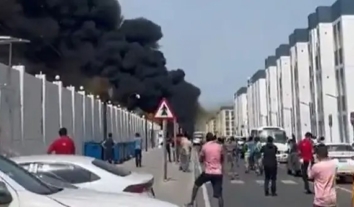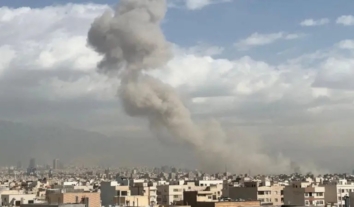Places of deprivation of liberty in Donbas: Better conditions, no safety guarantees
The conditions for patients and residents of the psychiatric hospitals, the psycho-neurological residential facilities, and the child care centers in eastern Ukraine have improved, however, no one is safe from the shelling.
This is the opinion of the monitors of the National Preventive Mechanism (NPM), who visited the places of deprivation of liberty in Nyzhne, Teple, Dmytrivka, Shchastia, Popasna, Svatove, and Hirske in Luhansk region.
“During the year, the conditions of residence in these facilities have generally improved. For example, UAH 40-60 are spent on food for one person per day. This figure reaches UAH 30 per day in other regions,” said Tetiana Pechonchyk, the Head of the Human Rights Information Center and the NPM activist.
However, according to her, the medical care in the psycho-neurological residential facilities is financed at the level of UAH 2 per resident per day. In some facilities, for example, in the Dmytrivka psycho-neurological residential facility, this sum amounts to UAH 0.66.
The NPM monitors saw the repair works, insulation of buildings, a lot of new equipment in many facilities.
For example, the foundation of one of the buildings of the Svatove psychiatric hospital, which was damaged as a result of explosions at the munitions depot, was repaired and strengthened. UAH 3.5 million were allocated for the repair works. The institution works and receives patients from across the region, including from the occupied territory. At the time of the visit, 682 patients were in the hospital. However, the hospital lacks diesel generators.
“If the power is cut off, almost 700 patients undergoing treatment in the institution will be deprived of food, as it will be impossible to cook it. In addition, it will impossible to heat a huge area of the hospital,” Tetiana Pechonchyk explained.
These facilities are assisted by various organizations such as the Red Cross and the volunteer initiatives, said employee of the All-Ukrainian Network of People Living with HIV Kostiantyn Dmitriev. According to him, no one complains about their conditions of residence.
“I was surprised that the staff was working under the usual schedule in such close proximity to the danger zone,” he said.
The human rights activists point out that the biggest problem of the places of deprivation of liberty located in the so-called grey zone is that no one can guarantee the safety of residents and staff.
The NPM monitors cite as an example the death of employee of the Popasna special orphanage. The woman died as a result of shelling when she was driving to work.
“During the mass shelling in March, the residents were taken to the Dmytrivka psycho-neurological residential facility, which is also located in the grey zone. Some people were transferred back to Popasna. Having visited this residential facility, we saw that one building was destroyed. There were craters from shells in the yard of the residential facility,” Tetiana Pechonchyk said.
The human rights activist is surprised at the fact that the government allocates huge funds for restoration of the buildings and wants to return the rest of the residents to this facility, which is in the immediate vicinity of the fighting.
“In case of escalation of the conflict, the residents and staff will be at risk once again,” she concluded.
A number of the psycho-neurological residential facilities in Luhansk region are understaffed.
The human rights activists say that it happens due to the fact that these places are located far away from the big cities.
“It was believed in the Soviet Union that our society is the physically healthy people and the people with mental disorders were not paid attention to, trying to hide the problem. Therefore, it is difficult to get to such institutions today,” Tetiana Pechonchyk explained.
The doctors, who live in urban areas, often do not want to get there. The problem is aggravated by a large number of checkpoints.
“Some of the staff, who worked in these facilities, remained in the occupied territory. Consequently, they simply stopped going to work. And those who still get to the institutions have to risk their lives every time,” Tetiana Pechonchyk said.
The human rights defender was also amazed at the fact that the staff of the Nyzhne psycho-neurological residential facility in Luhansk region, which was located in the uncontrolled territory and did not get funds from Ukraine, fed their residents at their own cost for four months.
“Fortunately, they are already in the government-controlled territory. However, they still face difficulties. Some suppliers refuse to deliver food to facilities because of the abundance of inspections at the checkpoints,” Tetiana Pechonchyk noted.















